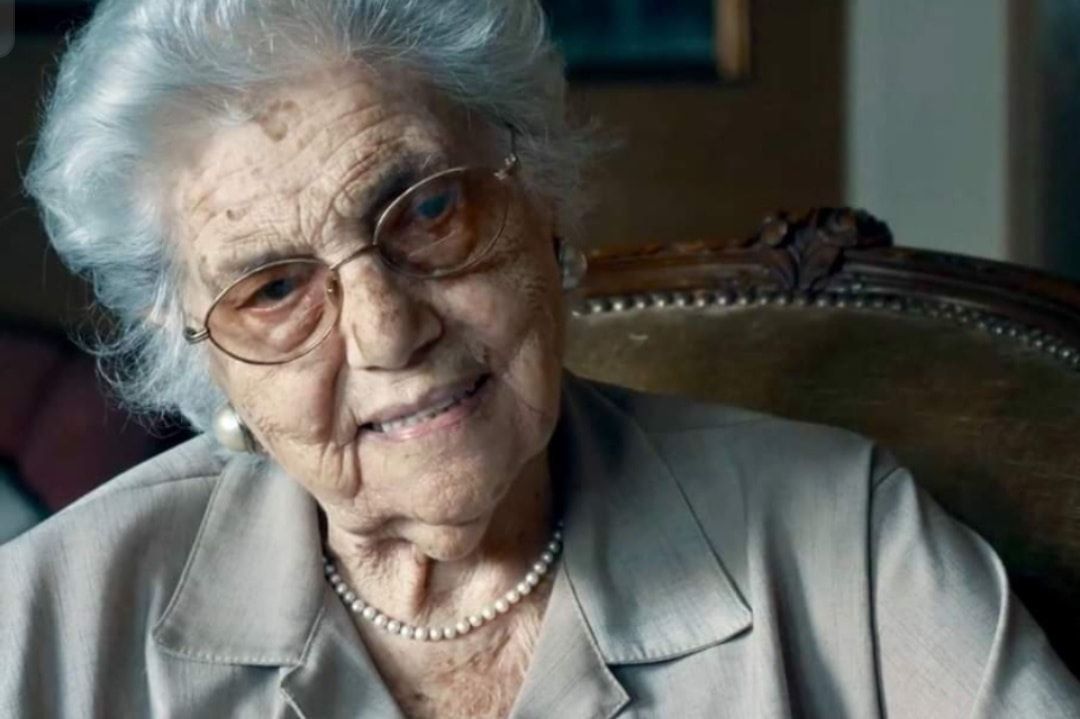MILAN – Italian Holocaust survivor Goti Bauer turns 101

In June of 1993, Goti Bauer wrote a few lines in one of her diaries in preparation for her testimony. “I am one of the very few survivors of Auschwitz. Almost fifty years have passed, and sadly, our number is decreasing quickly,” she began. “Now, maybe more than ever, each of us feels the urgency to speak out again about the immense devastation and give voice, through our stories, to those who never returned. We all know that time is short, and we feel a moral imperative to counteract the easy spread of false claims that minimize or even deny what happened with our painful testimonies.”
More than three decades have passed since she wrote those words, yet they are still true today. This is the legacy of Italian Holocaust survivor Goti Bauer, who turned 101 on July 29. It is safeguarded by her daughter, Rosanna Bauer Biazzi, and by the CDEC Foundation, which now houses her entire personal archive. At the core of this collection are five densely written notebooks in which Bauer prepared her speeches. The texts are drafts, often corrected by hand, with side notes, interruptions, and rewritings. “These diaries contain not only her testimonies,” explained Laura Brazzo, head of the CDEC Foundation’s Historical Archive, “but also drafts of letters, personal reflections, and even attempts at translating significant texts, such as Oliver Lustig’s Dictionary of the Camps and parts of the memoirs of Eva Klein Quittner.”
Thanks to the meticulous work of Paola Cipolla and the support of Italy’s General Directorate of Archives, the entire set of notebooks has been digitized and transcribed, making the material fully accessible for consultation and deeper textual analysis. “My mother always saw testimony as a duty,” Rosanna Bauer Biazzi told Pagine Ebraiche. “She continued to speak in schools and universities until she was 95. She always spoke in calm tones yet with immense inner strength. Those who heard her never forgot. Even now, we still receive letters and messages from students, teachers, and countless others expressing their gratitude.”
Over the years, Goti Bauer returned to Auschwitz on multiple occasions, often accompanying groups of students and officials. “She said bitterly, ‘That is my home,'” her daughter recalls. “It is a black hole that never closes, and in some way, it has been passed down over generations. It’s something imprinted in our DNA. Goti Bauer was born on July 29, 1924, in Berehovo, which was then part of Czechoslovakia. In 1929, she moved with her parents, Luigi Herskovits and Rosa Amster, and her younger brother to Fiume (now Rijeka, Croatia). Life became harder after the racial laws were passed in 1938 and worsened after September 8, 1943, when Fiume was annexed to Nazi Germany.
The family tried to escape to Switzerland with counterfeited documents, but was arrested. In May 1944, Goti was deported to Auschwitz and was the only to survive. “For many years, we knew nothing about her past,” Rosanna recalls. “Then, one day, she opened up and chose to speak publicly with remarkable courage. But she never wanted me to be there. I think it was her way of protecting me.” As Liliana Segre has often remarked, it was Goti Bauer who gave her the courage to begin sharing her story of surviving Auschwitz.
Now, at 101 years old, Rosanna says, “My mother still has an enviable sharpness of mind. Her views on the world are remarkably up to date.” However, they rarely discuss current events. She mostly reads books. “I try to protect her. I try to prevent her from watching too much television. Once, I mentioned a public gathering against antisemitism in Milan after October 7. She darkened immediately. I changed the subject, and we spoke about something else.” But before Rosanna left the house, Goti returned to the subject, visibly worried. “She asked me, ‘Do you have a safe home? Are you sure no one will come looking for you?’”
Daniel Reichel
Photo Children of the Shoah Association
Translated by Matilde Bortolussi and revised by Alessia Tivan, students at the Advanced School for Interpreters and Translators of the University of Trieste, trainees in the newsroom of the Union of the Italian Jewish Communities – Pagine Ebraiche.
